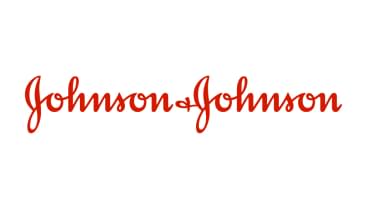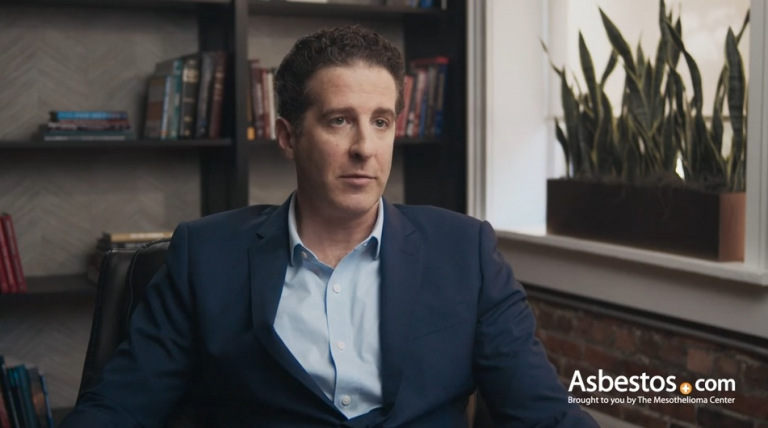Johnson & Johnson
Johnson & Johnson produced baby powder made with crushed talc. This mineral can become contaminated with asbestos when it’s mined. J&J has faced multimillion-dollar lawsuits claiming ovarian cancer and mesothelioma as a result of using its baby powder.

Johnson & Johnson’s Talc and Asbestos
Johnson & Johnson’s talc-based products, specifically baby powder and body spray, have a long history of testing positive for asbestos. Many consumers developed mesothelioma, ovarian cancer and other asbestos-related diseases from this asbestos contamination. As a result, J&J has faced mounting asbestos lawsuits and eventually removed talc from all its products globally in 2023.
The U.S. Food and Drug Administration found asbestos in a bottle of J&J’s talc-based baby powder in 2019. That bottle was part of a batch of 33,000 the company then recalled on October 18, 2019.
Company documents reveal attempts to hide tests of its talc mined in Italy from 1957 and 1958. These tests showed contamination from toxic asbestos. Tests of talc from Vermont also found asbestos.
In May 1974, documents show a Vermont Windsor Materials talc mine official suggested using citric acid to “depress” asbestos. Depression doesn’t guarantee total removal. It just reduces how much asbestos ends up in the final product. While J&J has historically claimed its talc was asbestos-free, recommending ways to reduce asbestos in talc seems to contradict that claim.
Who Was at Risk of Asbestos Exposure from Johnson & Johnson?
J&J’s talcum powder products put consumers who used their products on themselves and their children at risk of exposure to asbestos. Those who produced talc products for J&J were also put at risk for mesothelioma and lung cancer.
Families weren’t the only ones at risk from using J&J’s products. Workers with primary exposure from contaminated talc could accidentally bring home microscopic asbestos fibers on their clothes, hair or skin. This put their loved ones at risk for secondary asbestos exposure.
Higher-Risk Groups for J&J Asbestos Exposure
- Consumers who regularly used J&J’s talc-based products
- Cosmetic industry workers
- Family members of workers
- Miners and mill workers
- People who used talc in DIY or other applications
A 2024 study published in the Journal of Clinical Oncology found that women who used talcum powder on the genitals could develop ovarian cancer. Other studies have shown those who work with talc or use talcum powder may be at risk for mesothelioma.
“Talc continues to pose a risk to consumers due to its historic contamination with asbestos,” registered nurse Sean Marchese tells us. “Companies have known for years about this danger and how exposure can lead to cancer. Understanding the hazards of these products can help people protect themselves.”

Start filing your claim today so you and your family get the compensation they deserve.
Start Your ClaimMesothelioma Lawsuits Involving Johnson & Johnson
J&J says it’s settled 95% of the mesothelioma lawsuits it faced. But plaintiffs continue filing claims. Andrew Curtin, for example, filed a mesothelioma wrongful death lawsuit seeking $25 million in September 2024, stating his wife had used J&J’s baby powder for decades. The company responded in December 2024, claiming its cosmetic talc was safe.
J&J has spent about $1 billion fighting talc lawsuits. Courts have awarded billions of dollars to people who sued the company. The company still faces more than 60,000 ovarian cancer lawsuits.
Latest J&J Asbestos Lawsuit Developments
Daniel Wasserberg, a mesothelioma lawyer and founder of nationwide asbestos law firm Meirowitz & Wasserberg, tells us, “Johnson & Johnson is really trying to take advantage of the bankruptcy code for asbestos. It would create a terrible precedent for big successful companies to just exit litigation.”
Legal Help for People Exposed to Johnson & Johnson’s Asbestos
An experienced asbestos attorney can help mesothelioma survivors and their families seek compensation for medical bills, travel and lost income. If you were diagnosed with mesothelioma or another asbestos-related disease because of J&J’s talc-based products, you may be able to get financial help by filing a claim.
The amount of time you have to file a lawsuit after a mesothelioma diagnosis is called the statute of limitations. This time limit depends on your state, but it’s usually between 1 and 3 years. An experienced asbestos attorney can help you and your family ensure your claim is filed on time and correctly.
Patient Advocates at The Mesothelioma Center can help you learn more about compensation options and connect with the right legal expert for you and your family. They can help you find top doctors, schedule appointments, deal with insurance, file for VA benefits, join support groups and get financial help.
Recommended Reading





